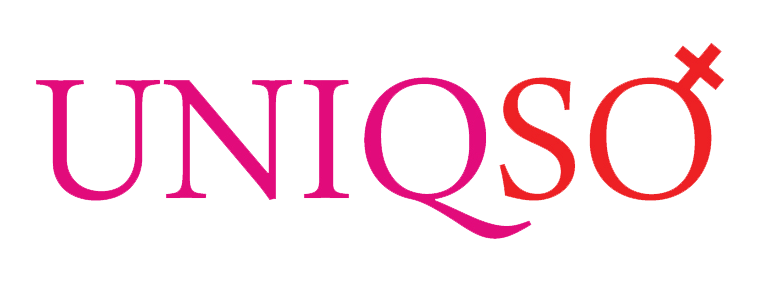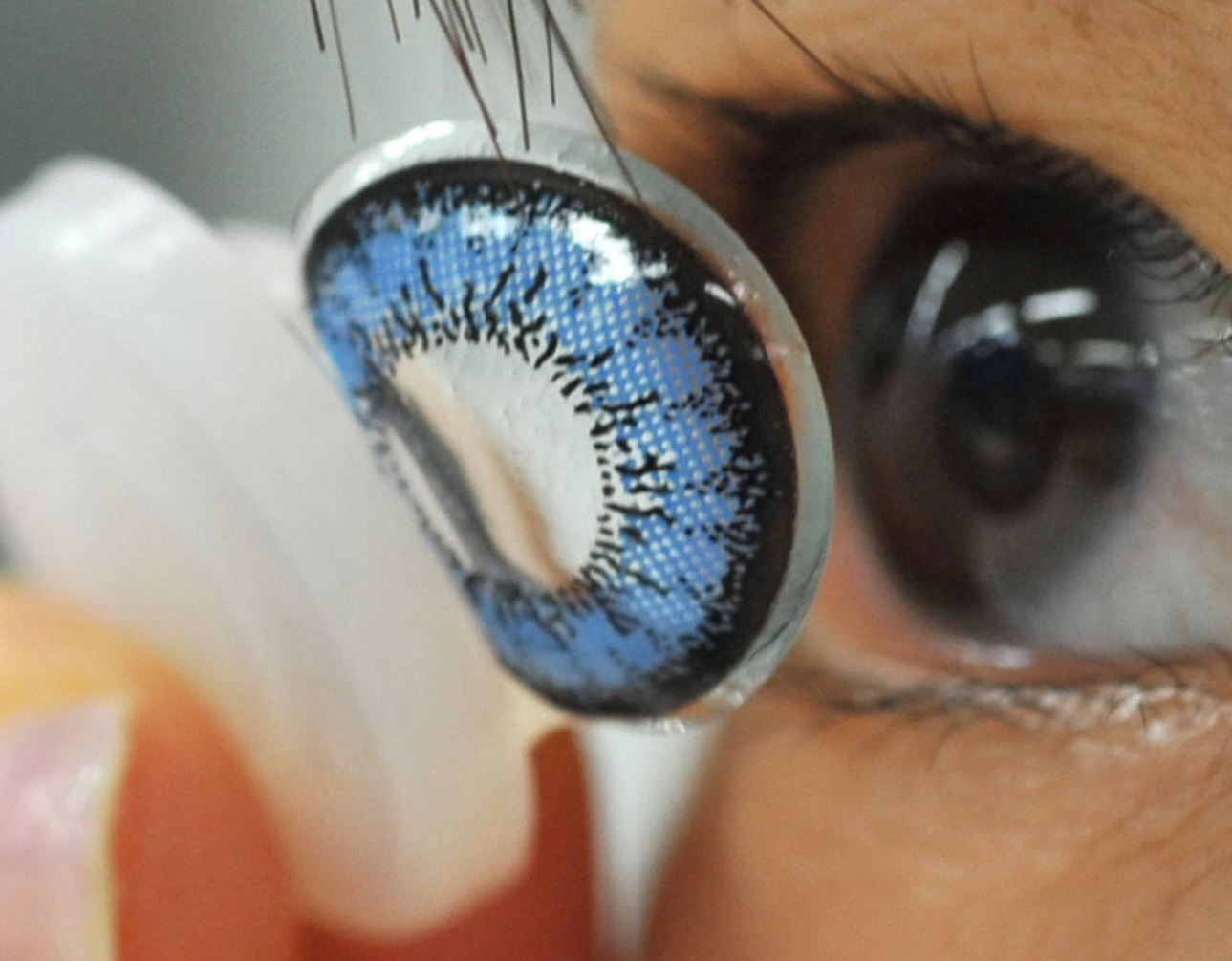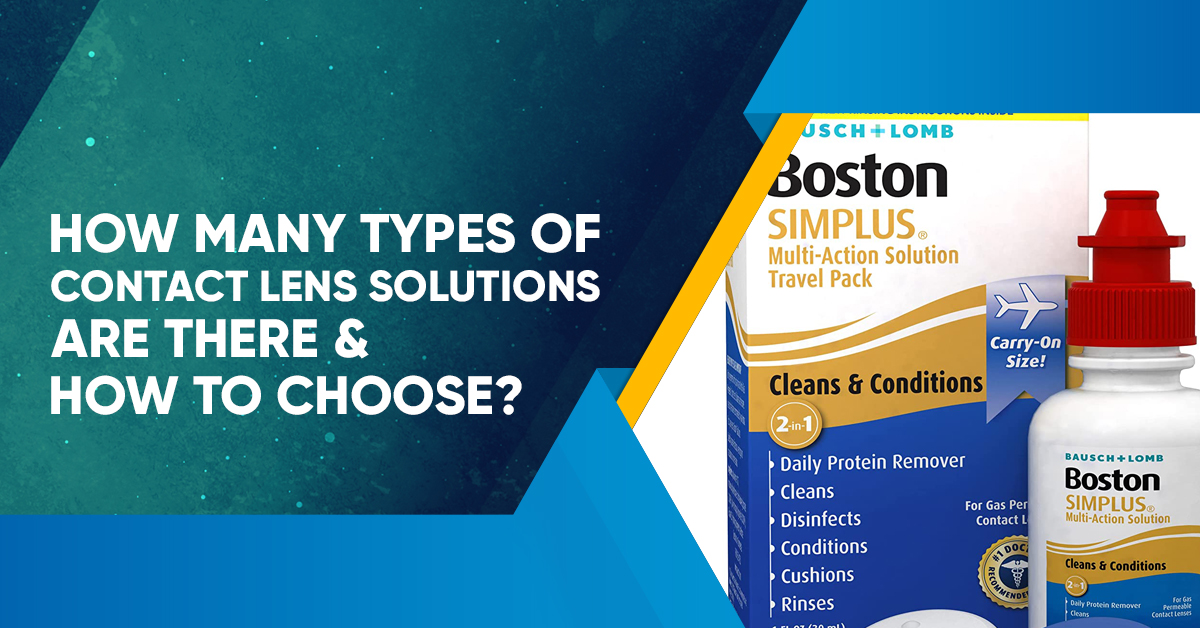There are so many contact lens solution types at a drugstore. Have you ever found yourself trying to figure out which contact lens solution should i use?
On the market nowadays, you may choose between several different kinds of contact lens solutions types. Hydrogen peroxide, saline solutions, rigid gas permeable solutions, everyday cleansers, and multi-purpose solutions are all included in this category. Which one is the best depends on your choice!
Your ophthalmologist will prescribe contact lens solutions if you wear rigid gas permeable lenses. Same goes to monthly, biweekly, or annual contact lenses.
Using the right contact solution to keep your lenses clean and ready for the next day is essential. But using the wrong one might lead to major problems.
So let’s find a suitable solution for you!
Table of contents
Estimated reading time: 11 minutes
What Are the Different Types of Contact Lens Solutions?
A contact lens solution can rinse, store, and clean your lenses, among other things. It kills bacteria and keeps contact lenses safe for your eyes.
Many formulas are available to meet the demands of various people, but they all accomplish the same thing. Here are the common types of contact lens solutions:
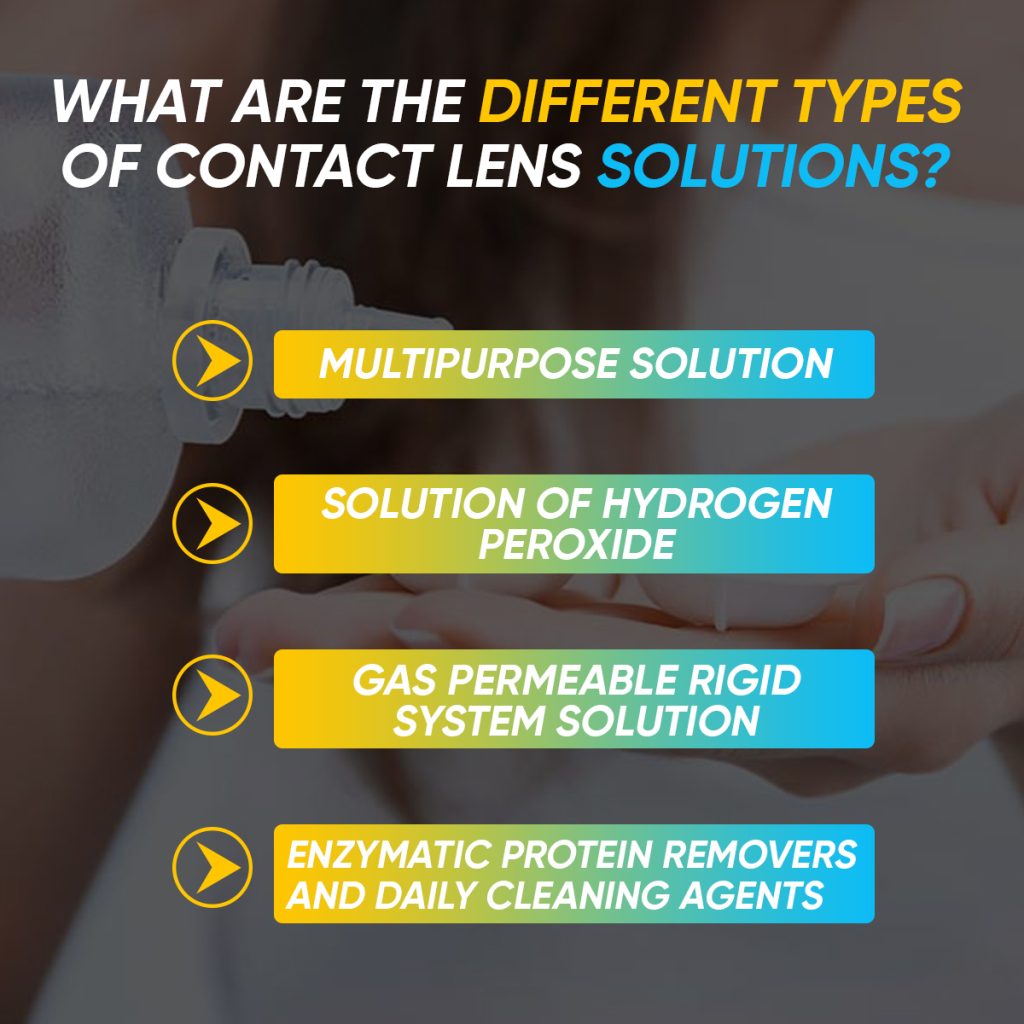
1. Multipurpose Solution
Contact lenses are cleaned and disinfected using a multipurpose solution. They are well-liked since they are quick and economical to use. Make careful to wash your hands before handling your contacts and cleaning them with a multipurpose solution.
Experts still advise touching the lenses for at least 10 seconds with your fingers after using a “no-rub” solution. The lenses will be clean and clear if this is done.
Before re-inserting your contact lenses, clean them well with saline solution. Be sure to pick the proper type of multipurpose contact lens solution for your contacts among the many available.
Example: Contact Lens Solution by Renu & COMPLETE Multi-Purpose Solution
2. Solution of Hydrogen Peroxide
Using a hydrogen peroxide-based solution to clean your contact lenses will necessitate a longer cleaning time. Individuals with chemical sensitivities or allergies would benefit significantly from this solution devoid of preservatives.
Contact lens solutions containing hydrogen peroxide are often more expensive than those having other ingredients. Disinfecting contact lenses with this solution is easy, but it might irritate or burn the eyes.
It would help if you neutralized this solution after disinfecting your contacts. When this solution is neutralized, it becomes sterile saline.
Soak your contacts in this solution for six to eight hours in a compact case. It is possible to disinfect in one or two steps, depending on the hydrogen peroxide solution used.
A neutralizer is typically included in the packaging of one-step products. On the other hand, two-step solutions necessitate the use of a neutralizing tablet after washing the lenses. Make sure you don’t forget the neutralizer.
After neutralizing hydrogen peroxide, do not re-use or refill the solution. You can no longer disinfect with this solution after neutralizing it.
To prevent the growth of microorganisms, properly dry your case between usage. Your eye doctor may recommend that you change your case every month or every three months to prevent the spread of bacteria.
Example: Equate Hydrogen Peroxide Lens Care System & Clear Care Cleaning & Disinfecting Solution.
3. Enzymatic Protein Removers and Daily Cleaning Agents:
Disinfecting lenses is not the purpose of daily cleansers, and they are designed solely for cleaning purposes.
A few drops of solution will suffice; rub your lenses for as long as instructed.
Over time, you can remove the residues that accumulate in your contacts by using enzymatic protein removers. Depending on the type of contacts you use, your optometrist may advise you to use a product to eliminate buildup.
Depending on the substance, you can use these removers once a week or every day. Before using enzymatic protein removers, visit your eye care practitioner.
Example: Bausch & Lomb Boston Enzymatic Cleaner
4. Gas Permeable Rigid System Solution
Unlike soft contact lenses, rigid gas-permeable or hard contact lenses need a distinct approach to cleaning and maintenance.
Many different cleaning, disinfecting, and wetting solutions are required. Hard contact lens wearers should speak with their eye doctor about the best care system. Soft contact lenses should not be cleaned with solutions designed for rigid gas permeable lenses.
Example: Gas Permeable Contact Lens Solution by Boston Simplus.
What’s In Your Contact Lens Solution?
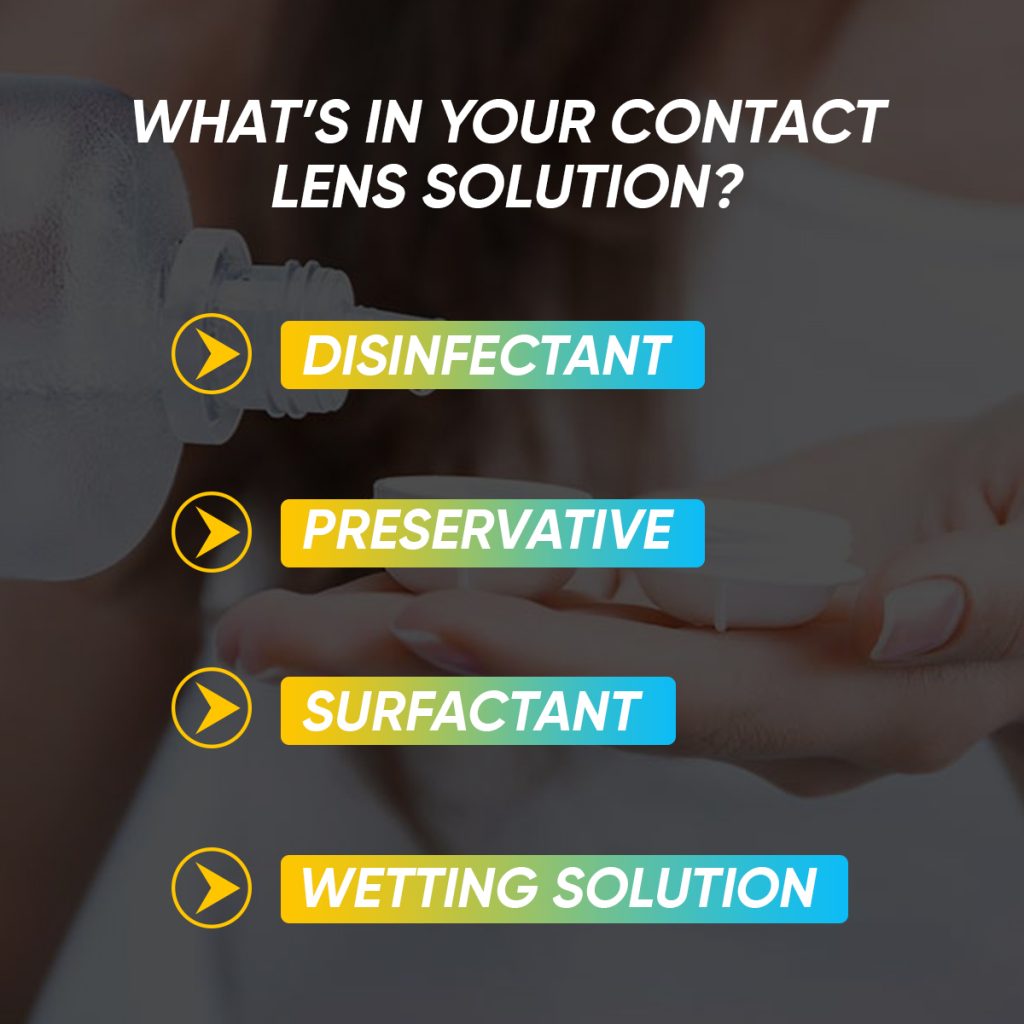
1. Disinfectant
Disinfecting contact lenses is one of the key tasks of contact lens solutions. The disinfectant in the solution destroys germs, bacteria, fungus, and other microbes that might lead to illness.
Contact lens disinfectants include hydrogen peroxide, boric acid, and ascorbic acid.
2. Preservative
Preservatives in contact lenses work the same way in food to keep them fresh and functional for longer periods. They extend the shelf life of your contact lens solution, allowing you to use it much past the expiration date.
3. Surfactant
Additionally, the contact lens solution serves as a surfactant. Using a contact lens solution with an effective surfactant component is especially important in areas with a lot of dust.
This component removes buildup from the surface of your contacts. As a result of its moderate abrasiveness, it can remove sediments from the lenses without damaging them.
Cleaners that utilize enzymatic agents can also break down protein and tissue on the surface of contact lenses, leading to various eye problems.
5. Wetting Solution
To maintain their suppleness, your contact lenses necessitate regular moisturizing. Over time, an effective wetting agent begins to disperse into the air.
When your contact lenses are moisturized, you’re less likely to feel eye strain.
Does Contact Lens Solution Expire?
There is always an expiry date on contact lens solution, whether saline, hydrogen peroxide, or RGP.
It’s dangerous to use expired contact lens solutions because of contamination. As a result, the eye may become inflamed due to bacterial overgrowth or infection.
When you open a fresh bottle, check the expiration date to ensure that you know exactly when to throw off the old one.
We recommend writing the date on the box when opening a fresh solution. This is to know how old the solution is and when to discard it.
You shall throw away certain multi-functional products after two months of use. Other multi-functional products should be thrown away after just one month.
Relevant Article: Do Contact Lenses Expire? : Facts You Need To Know About Your Lenses !
After a month, most multi-purpose solutions without preservatives should be thrown out. Different brands of the solution, on the other hand, will include storage instructions on the bottle.
Preservative-free multi-purpose solutions such as Kirkland Signature can be used for up to 90 days after opening. Keep an eye out for the expiration date on the bottle, or ask your optician if you have any questions.
Tips to Keep Your Contacts Clean with Solution
- Never re-use the ageing solution.
- Rinsing is safe, but cleaning and disinfection are not. A heat or UV disinfection system must be used in conjunction with these solutions to be safe for storage and washing. Never use these products to disinfect or clean.
- Don’t put fresh H2O2 solution-rinsed contacts in your eyes. First and foremost, they must be dealt with. Using hydrogen peroxide on your eyes can cause harm and perhaps blindness.
- Avoid touching surfaces with the solution bottle’s tip. No counter, no container, not even the glasses should contact it.
- Rinse and disinfect contact lenses only using contact lens solutions. Eye irritants and microorganisms can be found in tap water.
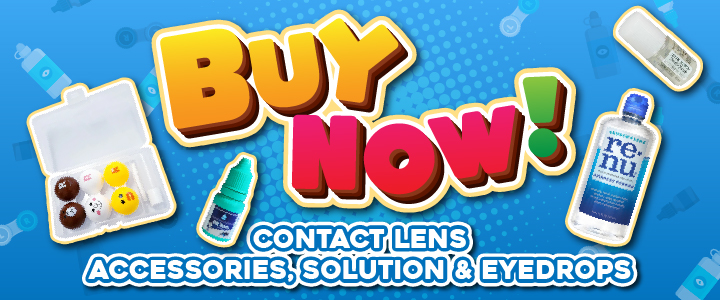
What Is the Appropriate Way to Clean and Rewet Your Contact Lenses?
Before handling your contact lenses, you should properly wash your hands. Then pat them dry using a towel that does not contain lint. Always clean your contact lenses with the “rub and rinse” approach. No matter what kind of solution for your contact lenses you are using.
Before placing the lenses in the water, you should first rub them with clean fingertips. And then rinse them with your eye doctor’s solution.
Read More: How To Clean Contact Lens Right : Checklist 101
It would help if you never moistened your contact lenses with saliva since it is not a sanitary solution. In addition, you should never rinse your lenses in water or a prepared combination of salt and water.
It does not make a difference whether you use saline solution or rewetting drops to clean your lenses because neither of those things is disinfectant.
When you clean and disinfect your lenses, you should always use a new solution each time. Do not pour your contact lens solution into a separate container since it will not be sterile anymore.
When the bottle is not being used, make sure to keep it firmly closed or sealed with a cap.
Relevant Article: How To Clean Contact Lens Case & FAQ
Final Verdict: So What Is the Best Contact Solution?
Finally, what contact lens solution should I use? To be honest, it’s all up to you. Lenses may be sterilized with almost any contact solution. See which flavors you like most. Some claim to sense multifunctional solutions’ residue. Others can’t bear hydrogen peroxide near their eyes.
Your ideal contact solution may not be someone else’s. Talk to the eye care specialist who cares about your eyes about your contacts and the best way to clean them.

Read More:
